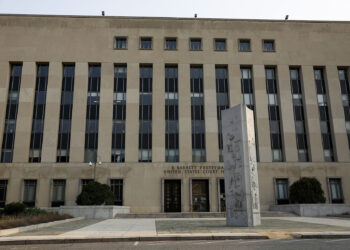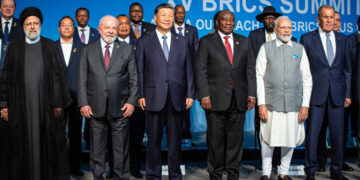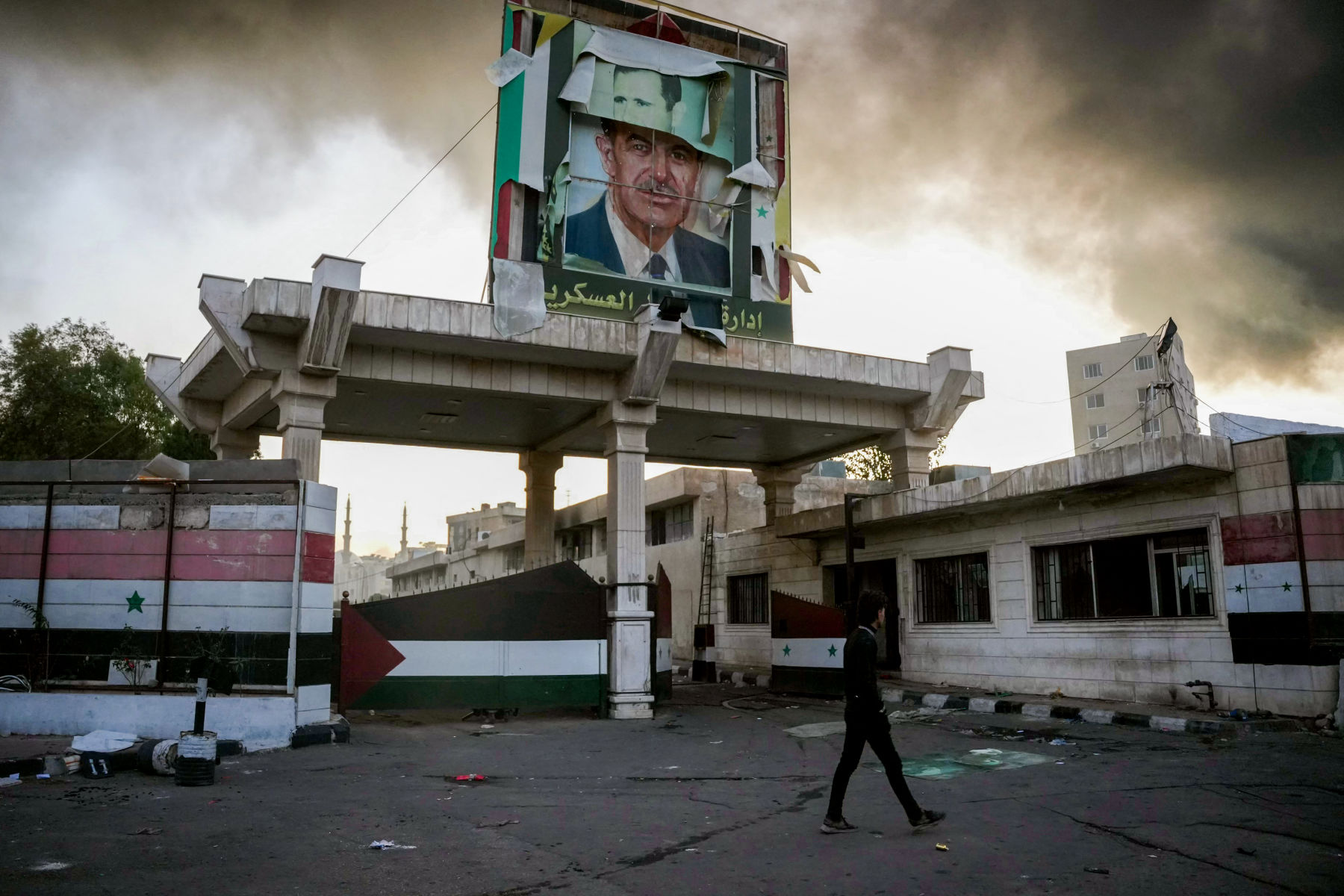Kaya Genç is a novelist and essayist from Istanbul whose writing has appeared in The New York Times, The Paris Review, The New York Review of Books, The Guardian, The Financial Times, and The London Review of Books, among other publications. He is the author of four books: The Lion and the Nightingale, Under the Shadow, An Istanbul Anthology, and Macera.
"They. Will. Leave." When Turkey's opposition parties came up with this slogan, targeting Syrian refugees in the country, just days before the second round of May's presidential elections, it wasn't much of a surprise. Billboards bearing another nationalist motto designed to whip up anti-refugee fervor—"Border Is Honor"—have gone up over Turkish cities for the past three years after Kemal Kılıçdaroğlu, the head of the Republican People's Party (CHP), decided that rhetoric would be an election winner in the largest refugee-hosting country in the world. It wasn't. People didn't vote for "They. Will. Leave."
Instead of highlighting President Recep Tayyip Erdoğan's autocratic assault on LGBTQI rights or his recent embrace of a flurry of dictators, from Russia's Vladimir Putin and Syria's Bashar al-Assad to Egypt's Abdel Fattah al-Sisi, why did Turkey's opposition play the refugee card? "Isn't ten million refugees in Turkey enough?" Kılıçdaroğlu asked in a propaganda video for his campaign filmed in his office at the CHP headquarters in Ankara. "Do you want an additional 10, 20 million to come over?" It's hard to say where his 10 million figure came from. According to official Turkish government statistics, nearly 3.4 million Syrian refugees reside in Turkey, along with an additional 320,000 refugees from other countries, primarily Afghanistan.
To further solidify his anti-refugee platform, Kılıçdaroğlu aligned with Ümit Özdağ, a far-right firebrand who espouses arguably the harshest rhetoric against refugees among Turkish politicians—in March, he warned against "potential terrorists, drug dealers and rapists" entering Turkey as refugees and creating conditions for a "civil war." Kılıçdaroğlu and Özdağ smiled for the cameras after signing a pledge to send back "all refugees in one year," shortly before the second round of the vote. Kılıçdaroğlu also adopted the xenophobic body language of an aspiring demagogue: Beating his chest with his fist and banging on the table, he attempted to morph into a Turkish Marine Le Pen—a defender of La Republique fighting les envahisseurs islamistes. Kılıçdaroğlu, who was absurdly likened to a Turkish Gandhi or Obama in some Western media, had calculated that to take down an autocrat, he had to win over the ultranationalists and the far right. But his invective against refugees failed to deliver.
If you live in Istanbul, you cannot ignore how an anti-Arab backlash has taken over daily life.
- Kaya Genç
What of Erdoğan, the strongman who will now rule Turkey for another half-decade? A benefactor to those millions of Syrians and others fleeing dictatorship and war, he still made refugees a target of his own electioneering, yet in a subtler way. After the presidential race went to a runoff in May, Erdoğan won the support of Sinan Oğan, the hard-line Turkish nationalist who came in third in the first round and was seen as the election's kingmaker. Oğan had pledged in his own campaign to "send back 13 million refugees in one year" and called Syrian refugees in Turkey a "national security threat." Erdoğan used more opaque language on refugees, talking about "a safe and voluntary return" for one million Syrians, even as he is moving to normalize diplomatic relations with Assad's regime in Damascus. Significantly, he didn't sign any binding document or announce major policy changes on hosting refugees. Yet on the night of his reelection, Erdoğan embraced Oğan, who stood a meter behind him during his victory speech. It was a discomforting sight.
But as part of Erdoğan's neoliberal vision, Turkey will likely continue to host large numbers of refugees, since the refugee community plays its role as a grateful provider of cheap labor. As the Turkish economy heads for a crash, with the currency in freefall and inflation skyrocketing, cheap labor is more vital than ever to the economic model that Erdoğan and his Justice and Development Party, the AKP, have engineered, so heavily dependent on manufacturing and exports. There is no need or desire to kick out the economic engine of cheap labor now. As long as a growing army of poorly paid laborers can be employed in the workforce, the titans of industry under Erdoğan can sell their products for competitive prices abroad, and the wheels of the Turkish economy can keep spinning.
There are still legitimate fears among political exiles from the Arab world, who have been able to resettle in Turkey over the past decade, that they may be expelled now that this anti-refugee hysteria has infected both sides of the Turkish political divide. If you live in Istanbul, you cannot ignore how an anti-Arab backlash has taken over daily life, including small interactions on the subway, at a supermarket or in a hospital. I have watched a video of Turkish shopkeepers beating an Arab youth accused of filming a Turkish girl in a shopping mall. I witnessed the shock of British journalists as they interviewed young Turkish progressives, seamlessly shifting from scolding Erdoğan's autocracy to talking of "Arabs invading our streets" on live broadcasts. I listened to a Dutch reporter friend who broke up with his Turkish girlfriend after he could no longer tolerate her father's racist talk about "the Arabs" after dinner.
"I have lived in Turkey since I was nine," a deliveryman from Syria told me outside a restaurant in Istanbul. "I deliver food. I'm following the rules. I grew up in Turkey, and I'm happy here, brother." The young Syrian, who asked not to be named, has adopted this country and built his life and memories in it—nobody should be able to kick him out for political gain.
The Turkish opposition could have engaged with the Syrian refugee community as a source of potential support for its political cause, but instead, it turned them into an object of fear—and lost the election.
- Kaya Genç
Yet refugees have become a popular target in a country in financial meltdown. Some opposition supporters explained away Kılıçdaroğlu's defeat by claiming 2 million Syrians were allowed to vote. (In fact, the number of Turkish citizens who were born in a foreign country and were allowed to vote in the elections was 240,000.) Among opposition politicians, how many lent a sympathetic ear to the working and living conditions of Syrians, instead of airing conspiracy theories about their supposed naturalization processes? How many visited their community centers and addressed their panic over being deported back to Assad's dictatorship? The Turkish opposition could have engaged with the Syrian community as a source of potential support for its political cause, but instead, it turned them into an object of fear—and lost the election.
And it did this all while Syrians themselves are increasingly making their voice heard in Turkey. In January, Syrian factory workers in the border city of Gaziantep went on strike, demanding raises to their monthly wages of 8,000 Turkish lira (about $444 at the time, with Turkey's currency collapsing) so they could afford the daily staples of fruit, milk and meat. The monthly minimum wage in Turkey was raised in June to 11,402 lira, or barely $440, with the lira at records lows against the U.S. dollar. Yet apart from restaurants, construction sites and textile factories, Syrians have little visibility in other sectors of the Turkish economy. In the country's vibrant publishing and art worlds, for example, where galleries, museums and publishing houses could easily collaborate with refugees to produce artworks, books and other cultural products, there is almost no activity involving Syrians.
For Turkey's establishment, both the Istanbul bourgeoisie and the pious capitalists of Erdogan's AKP, then, Syrians are increasingly seen as an underclass, and a convenient scapegoat for the country's economic crisis, even as they are exploited as cheap labor. By not embracing the existence of this massive, othered section of Turkish society, and instead turning on Syrians and other Arab exiles who share the burdens of Turkey's autocratic system as much as, if not more than Turkish dissidents do, Turkey's opposition didn't just lose to Erdoğan and his far-right allies. They proved they don't deserve to govern this country until they show solidarity with refugees.





































